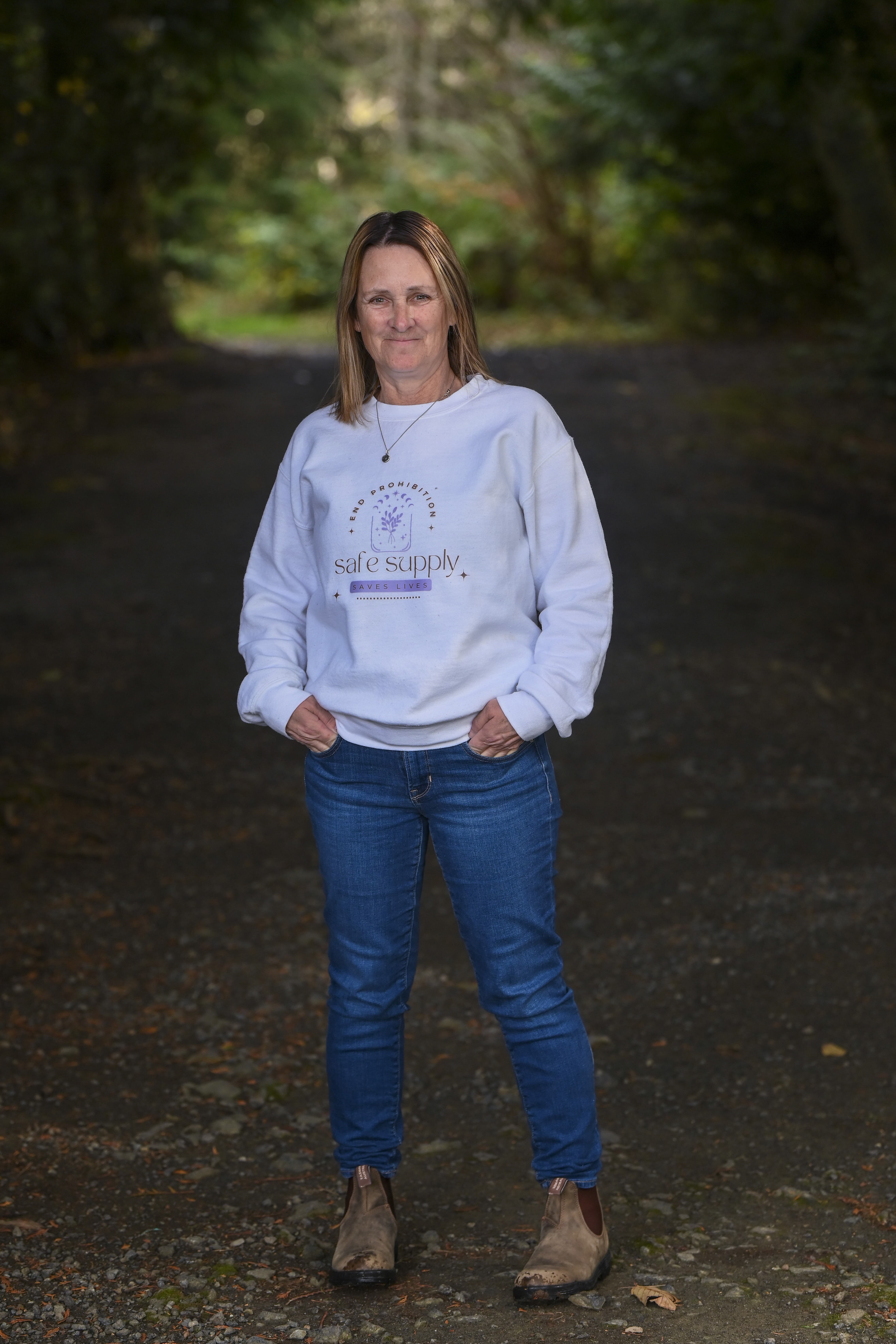
For Beth Haywood, connection was more than support—it was survival. Now six years sober and a peer coordinator with Island Health, she credits the life-changing relationships she made along the way as the cornerstone of her recovery.

Beth Haywood, Sooke
For Beth, substance use began as a way to numb the pain of past traumas. When she was 15, her mother, a social worker in Vancouver’s Downtown Eastside, was killed by a client. Beth later found herself raising three children on her own after leaving an abusive relationship. Then a boyfriend introduced her to crack cocaine and in six months she was hooked.
After 20 years of struggling with substance use, it was the loss of connection with her grandchildren that motivated her. She was living with her grandchildren when the ministry removed the children.
“I had to have supervised access to my grandkids,” says Beth. “That was the worst thing in the world. It was unbearable. I wanted to be a present, positive force in their lives. I knew something had to change.”
The first time she went to a recovery house she left after a month. Like many others who use substances, it took Beth multiple attempts. Illegally manufactured substances can change the brain making it harder for people to have self-control, solve problems and make decisions.
“When I went to a recovery house again, by chance, my dad’s Alcoholics Anonymous sponsor was working, and he recognized my name. I relapsed but he made sure I had the guidance I needed. I stayed there for more than a year and a half.”
Beth met Dr. Randal Mason, current regional medical director of Addiction Medicine and Substance Use at Island Health, when she began methadone treatment at AVI Health & Community Services. Methadone is a medication prescribed to treat opioid use disorder, which helps control cravings and alleviate withdrawal symptoms. Today, she continues to be a patient of Dr. Mason’s.
.png)
Dr. Randal Mason
“There’s nothing more important in someone’s recovery journey than having connection with someone who can be there for them along the way,” says Dr. Mason. “When someone is willing to open up about their substance use, as well as loss and trauma, it’s important to understand their vulnerability, which helps create a trusting and compassionate relationship.”
Now as a peer project coordinator, Beth is the one forging relationships with people who use substances, helping connect them with information and resources.
“I love being able to support and help people. I like seeing people smile, knowing I helped someone. I am my mother's daughter.”
Beth’s recovery journey also reconnected her to a long-lost relative, Auntie Carol, who Beth hadn’t spoken to in 40 years. A newspaper story about an overdose-related art project caught her aunt’s eye, when she recognized Beth’s photo, and they connected through the reporter.
"When I found my auntie, I felt like I had a connection to my mom again," Beth explains. "That bond is now a source of strength for me. She’s been a huge part of my recovery."
National Addictions Awareness Week is November 24 to 30. This year’s theme, Forging Connections, highlights the critical role relationships play in healing. Beth credits the life-changing relationships she made along the way as the key to her recovery.
“My advice to anyone struggling is to keep trying,” she says. “It’s tough but find that one person who believes in you. I know it can feel impossible, but there is hope, and there is help."
Island Health offers a range of safe, trauma-informed and culturally safe services for people seeking to manage their substance use. Services offered include prevention and early intervention, counselling, medications to treat substance use disorder, and services for detox, treatment and recovery. Services for adults can be accessed through a local Mental Health and Substance Use (MHSU) team. Island Health also provides a network of counselling, prevention, residential care and treatment services for youth (ages 13 to 19) and their families.
Learn more about National Addictions Awareness Week and the Canadian Centre on Substance Use and Addiction visit: National Addictions Awareness Week | Canadian Centre on Substance Use and Addiction
For local supports and resources, please visit:
- Mental Health & Substance Use Services (Island Health)
- HelpStartsHere (Government of British Columbia)
- Mental Health & Substance Use (Government of British Columbia)